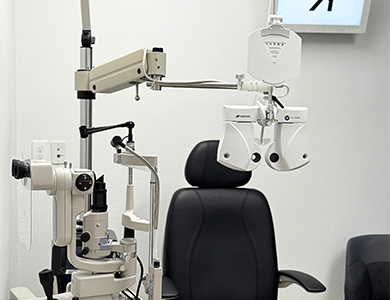Every set of eyes is different. And for some people, regular contact lenses just don’t cut it. Maybe they don’t fit well. Maybe they’re uncomfortable. Or maybe they leave your eyes feeling irritated and dry.
If that sounds familiar, you may be a good candidate for specialty contact lenses—customized lenses designed for eyes with specific needs.
What Are Specialty Contact Lenses?
Specialty lenses aren’t your everyday contacts. They’re designed for patients who can’t wear traditional lenses due to corneal conditions, injuries, or chronic dryness. These lenses offer better comfort, fit, and clarity by addressing the specific shape and needs of your eyes.
Who Might Need Them?
You might benefit from specialty contact lenses if you:
Have dry eye syndrome
Have corneal scarring or irregularities
Have keratoconus (a condition where the cornea bulges outward)
Struggle with strabismus (eye misalignment)
Have experienced an eye injury
Live with corneal thinning disorders
Are sensitive or intolerant to standard lenses
Not sure if you’re a candidate? Your eye doctor will walk you through your options based on your eye shape, health, and vision goals.
Types of Specialty Contact Lenses
Rigid Gas-Permeable (RGP) Lenses
These lenses allow oxygen to pass through to the eye, which helps keep it hydrated. RGP lenses are firmer than soft lenses, so they stay more stable on the eye and often offer sharper vision—especially helpful for patients with dry eye or corneal irregularities. They also help maintain corneal shape, which can be beneficial for certain eye conditions.
Scleral Lenses
Scleral lenses are larger than standard contacts and rest on the white part of your eye (the sclera) instead of the cornea. They arch over the cornea, creating a fluid-filled space between the lens and your eye. That space acts like a cushion, keeping the eye moist and accommodating irregular corneal shapes—ideal for dry eye and conditions like keratoconus.
Limbal Fit Lenses
These lenses are a mid-size option—larger than RGPs but smaller than full scleral lenses. Their size improves stability and reduces interaction with the eyelids, offering a more comfortable fit and clear vision throughout the day.
Hybrid Lenses
Hybrid lenses combine the best of both worlds: a firm, oxygen-permeable center (for sharp vision and hydration) surrounded by a soft outer edge (for comfort). Patients often choose hybrids when they want the clarity of RGP lenses but with the feel of soft lenses.
Let’s Find the Right Fit for Your Eyes
If you've been told contacts aren't an option for you—or you've tried and given up—don’t write them off just yet. With specialty lenses, many patients find better comfort and clearer vision than they ever thought possible.
Want to learn more or find out if you’re a candidate?
Call our office or book an appointment to talk with our team. We’ll guide you every step of the way.









